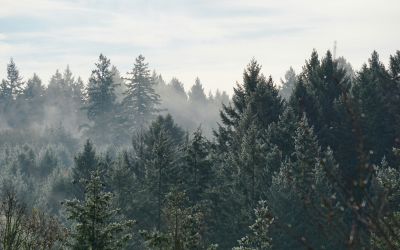Lake Victoria communities could be key to millions of ‘climate’ dollars for poor around the world
Village communities in Western Kenya alongside ones in Niger, Nigeria and China could become the key to unlocking the multi-billion dollar carbon markets for millions of farmers, foresters and conservationists across the developing world.
Village communities in Western Kenya alongside ones in Niger, Nigeria and China could become the key to unlocking the multi-billion dollar carbon markets for millions of farmers, foresters and conservationists across the developing world.
Catchments in and around Lake Victoria have been chosen as a test-bed for calculating how much carbon can be stored in trees and soils when the land is managed in a sustainable, climate-friendly ways.
The initiative, known as the Carbon Benefits Project, was launched today by the UN Environment Programme (UNEP), the World Agroforestry Centre, along with a range of other key partners. The project is being funded by the Global Environment Facility.
Under the United Nation's climate convention and its Kyoto Protocol, developed countries can offset some of their greenhouse gas emissions by paying developing economies for implementing clean and renewable energy projects such as wind, solar and geothermal power.
In December 2009, at the crucial UN climate convention meeting in Copenhagen, Denmark, nations may decide to also pay to tropically-forested countries for maintaining standing forests under a scheme known as Reduced Emissions from Deforestation and forest Degradation (REDD).
This is because up to 20 per cent of the greenhouse gas emissions linked with climate change is coming from deforestation-more than from cars, trucks, planes and ships combined.
UNEP, along with the Food and Agricultural Organization and the UN Development Programme, is working with nine developing nations including the Democratic Republic of Congo, Tanzania, Papua New Guinea and Panama in preparation for the inclusion of REDD in a future agreement on climate change in Copenhagen.
Click here to read more






